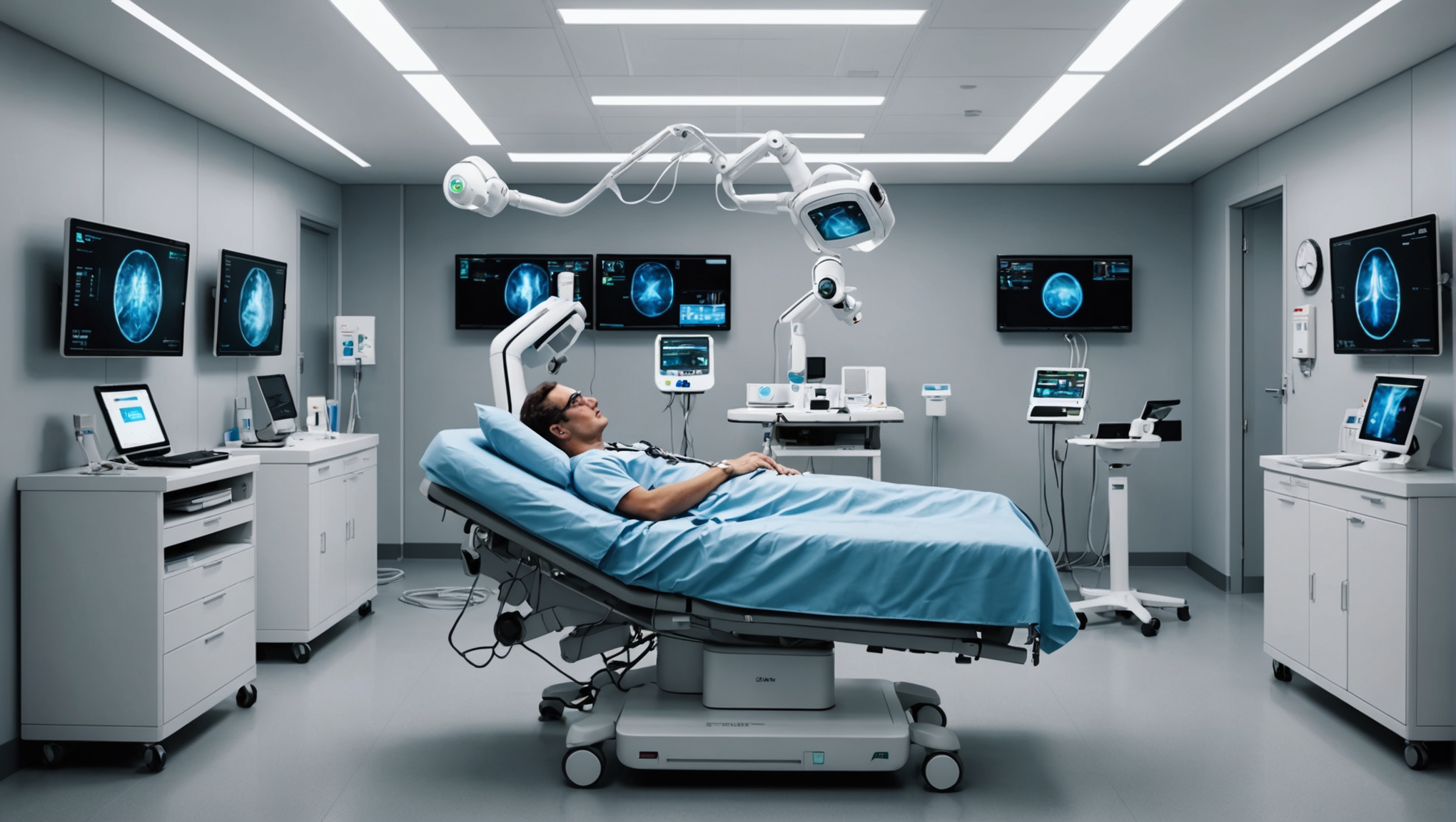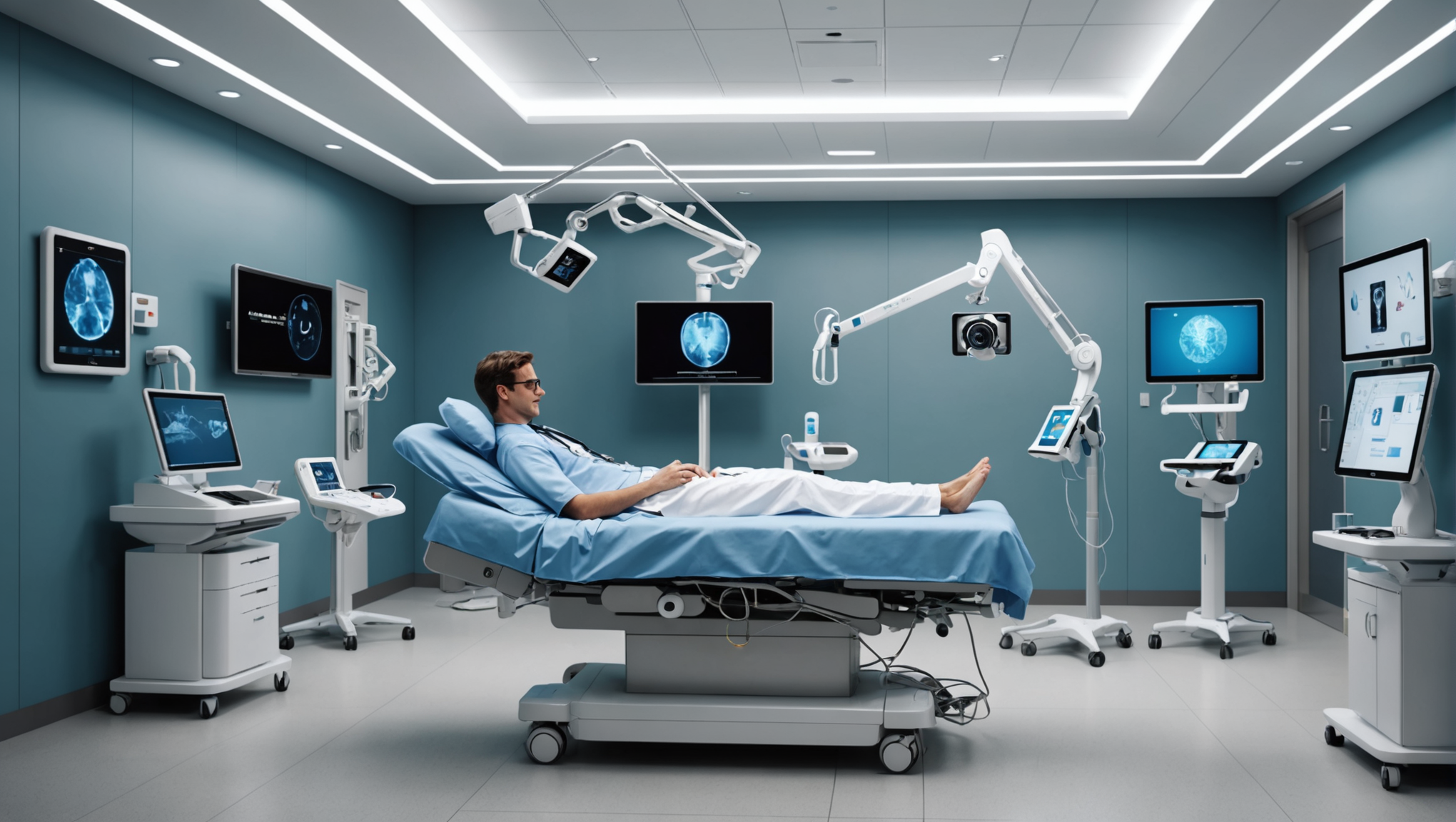The healthcare sector is experiencing an unprecedented revolution thanks to advances in technological medicine (MedTech). THE innovations are emerging at a rapid pace, redefining methods of diagnosis and treatment, while improving the quality of care provided to patients. On the one hand, solutions like surgical robotics allow less invasive interventions, while theartificial intelligence offers predictive analytics that facilitate clinical decision-making. On the other hand, the remote monitoring is becoming a reality thanks to connected objects, offering healthcare professionals invaluable tools to monitor the health status of their patients in real time.
The actors of the digital health, from startups to large MedTech companies, are mobilizing to implement disruptive technologies that shape the future of care. This dynamic of innovation not only leads to significant improvements in the management of chronic diseases, but also triggers a questioning of traditional health models. The resulting new perspectives promise a future where each patient benefits from personalized monitoring and solutions adapted to their specific needs.
The health sector is in full swing mutation, and MedTech innovations play a central role in these changes. At the heart of this revolution are technologies that not only improve medical treatments, but also reconfigure the way patients interact with the healthcare system. By analyzing this transformation, we can identify several key trends shaping the future of medicine.
Artificial Intelligence and Predictive Analysis
The integration of artificial intelligence (AI) in the medical field is one of the most promising innovations. AI systems are capable of analyzing large and complex data, enabling healthcare professionals to make informed decisions faster. For example, a recent study showed that AI can reduce diagnostic errors by up to 40% by suggesting diagnoses based on medical histories and observed clinical signs.
Many startups emerging in this field, developing predictive analytics tools that assess chronic disease risks. These tools help anticipate disease episodes rather than reacting after they occur. For example, predictive models that use health data of patients, combined with medical histories, can predict with impressive accuracy the likelihood of developing diseases such as diabetes or heart disease.
Additionally, companies like IBM with its Watson Health system have invested in solutions that use AI to analyze millions of medical documents at incredible speed, providing personalized treatment recommendations. This not only saves time, but also represents a tremendous improvement in the safety of care.
Wearable Technologies and Telemedicine
Portable devices, such as smart watches and activity trackers, are fast becoming essential tools for health monitoring. According to a study conducted by Statista, approximately 30% of adults own a wearable device capable of tracking their vital signs. These devices collect data in real time, providing valuable information to doctors and patients.
The combination of these technologies with telemedicine has enabled a dramatic transformation in the way healthcare is delivered. During the COVID-19 pandemic, for example, the use of remote consultations jumped by more than 1,500%. This demonstrated not only the viability, but also the effectiveness of telemedicine, allowing patients to access care without having to travel.
At the same time, innovative projects, such as those carried out by MedTech Innovator, aim to improve the integration of these technologies into the traditional health system. These initiatives reinforce the idea that tomorrow’s health cannot be imagined without these resources.
Surgical Robotics and Minimally Invasive Medicine
Another important turning point in the medical landscape is brought by the surgical robotics. Robotic systems such as the famous Da Vinci Surgery System facilitate minimally invasive procedures, resulting in less pain for patients, shortened recovery time and reduced scarring. The ability of these robots to perform precise and controlled movements is redefining the standards of surgical operations. In 2020, reports indicated that up to 90% of urological surgeries in the United States were performed using these technologies.
Beyond surgery, concrete cases are emerging of the integration of robotics in procedures such as interventional cardiology. For example, at a recent industry conference, experts shared groundbreaking advances highlighting how robotics minimizes risks when operating on high-risk patients. The increased precision of robotic surgical procedures is conducive to better clinical outcomes.
For healthcare establishments, investing in these technologies represents a major challenge. Indeed, the initial costs may seem high, but the savings generated by reduced hospital stays and post-operative complications can quickly offset these expenses.
Digital Therapies and Patient Education
THE digital therapies, including applications and online training programs, have taken center stage. These tools are designed to help patients manage their illnesses, based on behavioral and psychological approaches. Studies show that patients who use these tools show significant improvement in controlling their symptoms, especially in conditions such as diabetes and anxiety disorders.
Furthermore, innovative companies are developing education platforms for patients that allow them to better understand their health conditions. Thanks to interactive applications, patients can follow their treatment, view explanatory videos and stay in touch with their medical team. This proactive approach contributes to better adherence to treatment and improves patient engagement with their health.
This is also a response to a growing need for personalization of care. Patients are increasingly looking for solutions that are tailored to them, and digital therapies are paving the way to meet these new demands.
Nanomedicine and Therapeutic Advances
There nanomedicine is also emerging as a fascinating discipline within MedTech innovation. The use of nanotechnologies in the treatment of certain diseases, in particular cancerology, offers new perspectives. By using nanoparticles to target specific tumor cells, these treatments can significantly increase the effectiveness of drugs while minimizing side effects.
Current research at renowned institutions demonstrates that by using nanotherapeutic approaches, it is possible to achieve higher remission rates in patients with advanced cancers. For example, the results of a clinical study on the use of nanoparticles in the administration of chemotherapy showed that a targeted form reduced the size of tumors by 70% in a significant number of participating subjects.
Strategic decisions to implement these technologies into treatment protocols require investments in research and development, but the potential benefits for patients could well revolutionize the current therapeutic approach.
These innovations in nanomedicine and other fields demonstrate that the line between science and medicine is becoming increasingly blurred, paving the way for a future where treatments are more targeted, effective and personalized.

Thanks to @Autodesk & @AutodeskFdn for awarding Autodesk Solutions as part of Autodesk Technology Impact Program. Appreciate for joining our journey of developing empathetic innovations. #medtech #innovation #healthcare #womenhealthmatters pic.twitter.com/tIdEu0gHhy
— NESA MEDTECH (@Nesa_Medtech) April 8, 2022
FAQs on MedTech innovations transforming the healthcare landscape
What are the most notable MedTech innovations? Among the most notable innovations, we find the surgical robotics, THE wearable health devices, and theartificial intelligence in the diagnosis.
How does surgical robotics impact medical interventions? There surgical robotics allows for more precise and minimal interventions, thus reducing recovery time.
What is digital health? There digital health includes the use of digital technologies to improve access to care and optimize the patient journey.
How are startups transforming the healthcare industry? THE deeptech startups innovate by offering solutions that improve health systems by integrating advanced technologies.
What are the challenges of health innovation? Issues include improving theeffectiveness of care, reducing costs and increasingaccessibility to health services.
What are the current trends in medical innovation? Trends include the adoption of digital therapies, remote monitoring, and the growing use ofpredictive analytics.
How is nanomedicine revolutionizing healthcare? There nanomedicine use the nanotechnology to target treatments at a cellular level, improving therapeutic effectiveness.
What prospects do MedTech innovations offer for the future? Innovations offer promising prospects, particularly in terms of prevention, of early diagnosis and of personalized treatments.













